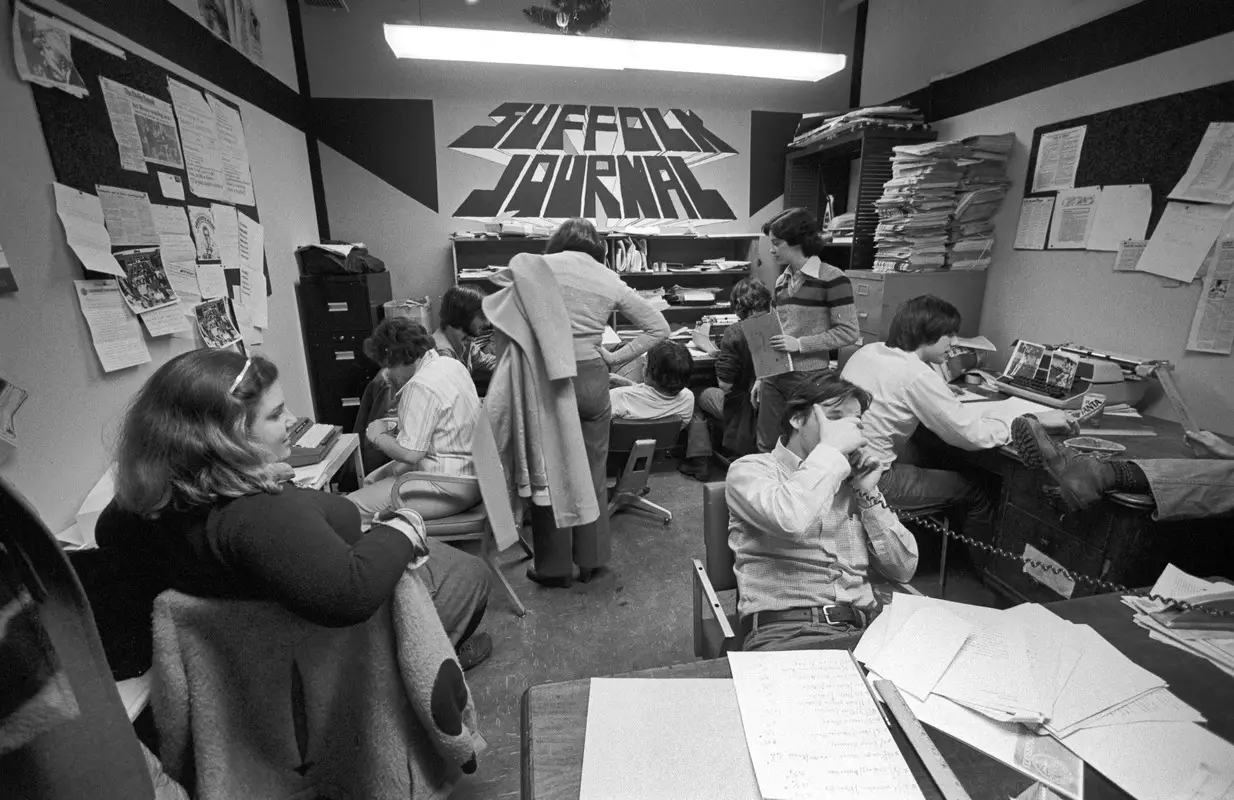The first piece of real writing I created was when I was seven years old. I wrote a short story called “Princess Tatianna and the Dragon,” a story about a young girl who lived in a castle with her royal parents. One day, a fire-breathing dragon crawled over the castle’s moat and the princess thought she would have to battle the dragon to its death. Scared and shaking, she drew her sword, but as she looked up, she realized the dragon was just as terrified as she was. The dragon and the princess became the best of friends, and my first short story came to a happy end.
When I first began writing for my college newspaper, “The Northern Star,” I would shiver every time I submitted a story to my editor. I was nervous, afraid my writing wouldn’t be good enough or appreciated. One day, my editor came to me and said she was impressed beyond belief at the stories I submitted, but she had been fearful at the beginning of hiring a brand-new writer with no professional experience. We were both petrified but learned to trust in our abilities and decisions.
Writing for the “Star” has taught me countless things from confidence to creativity, but it’s hard explaining the benefits. Most college students think the newsroom is full of Journalism majors, but that’s a common misconception. You don’t have to be a journalism major to write for your college newspaper, you just need a passion for writing and exercising your freedom of speech.
If you’re a young writer looking to be involved on campus, make new friends and build an extensive portfolio, the college newsroom is the place for you. Here are five reasons why you should write for your college newspaper.
1. You Become a Better Writer
You won’t always write about things that excite you, but you will write. You’ll write constantly. Writing on a consistent basis helps you in ways you may not even realize: Your grammar, syntax and form improve out of practice and habit. You become aware of past-tense verbs, modifiers and the dreaded Oxford comma.
I’ve never been a fan of the phrase “Practice makes perfect,” so I like to modify it and say, “Practice makes permanent.” By writing every day, you’ll develop habits that improve your writing without you even being consciously aware. Proofreading becomes second nature and discovering new facts thoroughly excites you.
Even if you don’t intend on pursuing a journalism career, nearly every job market needs thoughtful and expressive candidates, a.k.a. good writers. It’s also no secret that great writers are also great speakers, great thinkers and great leaders. The ability to express your voice and the voices of others is a talent sought after by every profession, from engineers to elementary school teachers.
2. You Build a Portfolio Seeping with Bylines
Many editors and hiring managers in the fields of journalism, advertising, marketing and digital media look for resumes filled with experience from accredited organizations. When I was starting out as a writer, I thought “accredited” only meant places like “The Huffington Post” or “The Wall Street Journal.” However, most college newspapers are accredited by “The Associated Press,” “Associated Collegiate Press” and the “College Newspaper Business and Advertising Managers.”
A college newspaper belonging to professional journalism organizations such as those listed above, as well as chambers of commerce and state organizations, gives their work credibility and standards potential that employers value. I guarantee a portfolio of your article clippings from NIU’s “The Northern Star” will carry more weight than a binder full of your blog entries about lame ex-boyfriends and green juice cleanses.
3. Your Newsroom Becomes Your Home
In my first journalism class, I learned one of the biggest factors in newswriting is proximity: How close the story is to home determines if it’s newsworthy. Readers in Cleveland won’t care about a high school basketball player in Denver, no matter how legendary his dunk was, and that’s the essence of proximity. We care about things that are close to us. The same philosophy applies to the writers, editors and advertisers in a newsroom.

Between office hours, budget meetings and late-night editing sessions, you become really close with the people on your team. The newsroom brings together students from all majors and encourages people to come together for a common purpose: to inform and educate the student body. Those long hours spent arranging print layout and putting the finishing touches on the month’s editorial bring you closer to your fellow colleagues and builds a deep, reciprocal admiration for each other’s professional work and personal demeanor.
4. Your Time-Management Skills Will Be on Point
On any given day in the newsroom, you’ll hear one word at least ten times without fail—deadlines. Missing a deadline means a world of hurt comes down on you and your team. Your story is toast and doesn’t get published, which means there’s a gigantic hole in the paper your editor has to scramble and fill. It’s a pretty sucky feeling seeing your hard work, interviews and well-researched paragraphs go to waste because you didn’t get your shit together.
It can be daunting at first, but deadlines aren’t meant to scare you; they are meant to push you. They teach you how to plan your research, prewriting and brainstorming, proofreading and final round of edits. The time-management skills you learn will also help you with your daily class-load and major essays. Scheduling becomes second nature and late assignments are a thing of the past. By the end of the semester, you are punctual and efficient in the work you churn out.
5. Your Writing Becomes a Part of Something Greater
Go ahead and laugh, but you won’t believe how true the above sentence is until you live it. I used to think that my writing had no meaning, that my scribbles and half-ass ideas could never turn into something meaningful and great. My first job at the “Star” was as an entertainment columnist, meaning I basically wrote movie reviews, event previews and pop culture commentary pieces. They weren’t fluff, but by no means were they hard-hitting journalism.
However, after a few weeks of writing, I started to think of ways to turn my reviews into stories, stories with heart that could impact our student body. I was tasked with writing reviews of films nominated for Oscars, but instead of simply explaining basic plotlines and cast lists, I used my three hundred and fifty words to discuss racial inequality, hardship and heroism within the films. My stories got a lot of buzz around the newsroom, and the hype quickly spread to the student body. Even my professors and social media followers started reaching out and commenting on how impactful my stories had become.
You’ll fall in love with your college newspaper, I guarantee it. You’ll start measuring your weeks by publishing dates and consuming more black coffee in the staff lounge than your body is accustomed to. You’ll fall asleep at your desk and wake up in a cold sweat, realizing that final detail your story had been missing. You’ll miss deadlines and misplace quotation marks, but you’ll learn from every mistake and come out a better writer because of them.
















